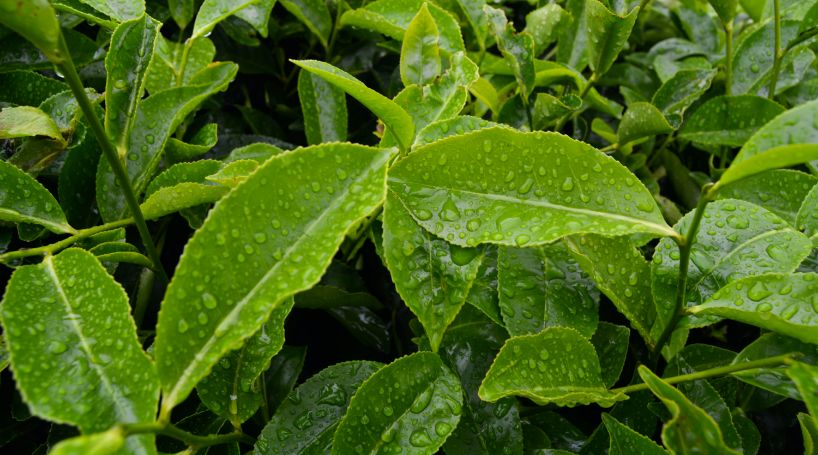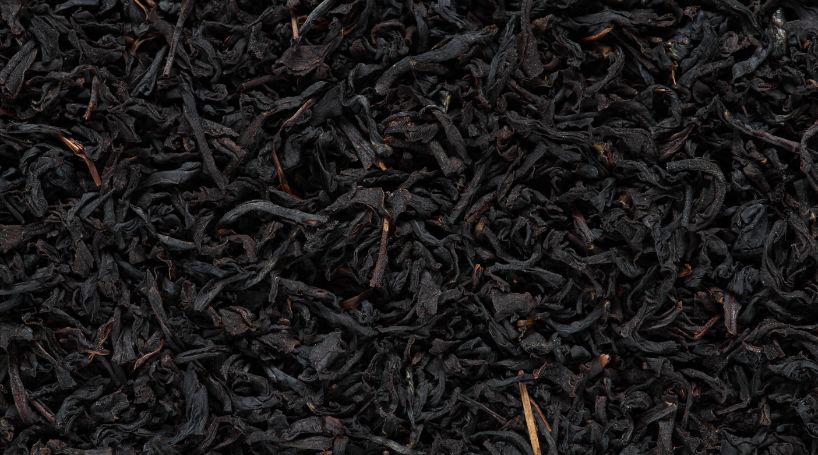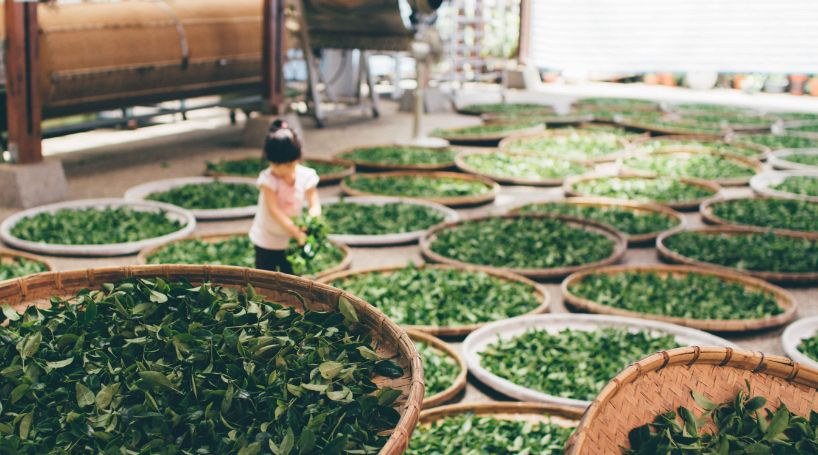
Storing loose-leaf tea can be a confusing task for some businesses.
You might have questions such as:
Which environment is best suited to keep the tea fresh for as long as possible?
Or…
What material is best used to store tea?
If you run a business that sells tea or you’re thinking of doing so, then we will answer questions like these in this blog post.
We’re a wholesale tea supplier so we know a thing or two when properly storing tea.
Storing tea is important to get right, otherwise, your customers could be let down on quality and taste.
How to Store Tea

Storing tea properly is crucial for maintaining its quality and flavour, especially from a business perspective where you need to ensure your tea products remain fresh and appealing to customers.
Find out how our tea producers make your favourite tea here and why it is so important to store it correctly.
Even if you’re not a business owner and just an avid everyday tea drinker, it’s still useful to know how to store tea properly.
Here are some key considerations for storing tea:
Choose the Right Storage Containers
When dealing with loose-leaf tea you’ll need to ensure that the container you use is airtight and moisture-proof.
When tea leaves are exposed to the air (oxygen) they can start to change colour, which will also change the taste.
The same thing applies when it comes to moisture. This can also have an effect on the tea’s flavour and colour.
Another aspect to consider is the material used for the container of your choice.
Plastic should not be used to store loose-leaf tea leaves as plastic tends to absorb odours.
This could cause issues if you store different flavours in the same container.
Once you refill your container, the odour of the old tea could remain, causing the new batch to be affected.
Keep Tea Away from Light
Keeping tea leaves away from natural light is very important in the storage process.
That is because light can degrade the quality of tea leaves and affect their flavour.
An ideal container with the right material will be opaque so no light can get through and affect the tea leaves.
This is why the likes of aluminium and ceramic containers are recommended.
Tea leaves are affected by light as it changes their chemical composition. Giving it an unpleasant metallic taste.
Maintain Temperature and Humidity

Temperature plays a huge role in the process of storing tea.
This can prove to be a problematic issue, especially for those who live in countries that experience extreme weather conditions.
Ideally, you want to store tea leaves in a cool, dry place that isn’t in contact with direct sunlight. The temperature can fluctuate when it’s being stored, just as long as it’s not too low or too high.
The ideal temperature range is usually between 20°C(68°F) and 25°C(77°F).
An important point to remember is that this temperature may vary depending on the specific type of tea you plan on storing.
For example, Green tea can be stored at lower temperatures than other teas.
In one study, an experiment was carried out on green tea to assess the effect of storage temperature on the alteration of the tea’s sensory quality.
They found that this particular type of green tea (Huangshan Maofeng tea) could be stored at -80°C or -20°C and still remain fresh regarding leaves appearance, tea infusion colour, taste and aroma.
Avoid Strong Odours
Tea leaves can absorb odours that they are around, which is why they must be kept in an airtight container.
If tea leaves absorb other smells then their taste can be altered.
This is why it’s essential to store tea away from strong-smelling items, such as spices, coffee, or foods with strong odours, as well as away from potential contaminants like cleaning products or chemicals.
When tea leaves absorb odours, it can result in a negative impact on the overall tea-drinking experience.
The absorbed odours can mix with the natural flavours and aromas of the tea, leading to an undesirable taste or aroma.
Monitor Inventory Levels
Monitoring your inventory levels is an important part of storing your tea stock.
Keeping track of your tea inventory and reordering supplies when necessary is vital to prevent overstocking or running out of popular varieties.
Just ensure that your storage space is adequate to handle the inventory you’re storing. Otherwise, you could risk contaminating the stock due to unsuitable storage conditions.
To help with inventory levels practise the “first in, first out” (FIFO) method.
This can ensure that older tea stock is used or sold before newer stock. This prevents tea from becoming stale.
Loose-leaf tea can last 1-2 years so the shelf life is relatively long which means you’re not under pressure to get it sold as soon as it comes in.
Labelling and Organization
Clearly label your tea containers with the type of tea, date of purchase, and any other relevant information.
Organise your tea storage area for easy access and inventory management.
If you buy your tea in bulk it may already come in a labelled container.
Sometimes you will be required to break bulk batches into smaller more manageable batches.
This is where proper labelling and organisation will be key.
You’ll know which tea stock to sell first as the freshness of each batch could vary.
The UK also has legal requirements when it comes to packaging and labelling. These are set out by the FSA (Food Standards Agency).
Quality Control
When dealing with any perishable stock it’s always a wise move to invest your time and effort into setting up proper quality control measures.
As your stock fluctuates and day-to-day tasks are carried out, there is always the risk that issues could arise.
For tea leaves, this could be in the form of some sort of contamination such as mould or odour.
When you have quality control in place you can spot issues such as these when they arise and take the appropriate action to rectify them.
The last thing you want is to miss something and have it affect your customers’ experience.
Loose Leaf Tea Storage and Handling Experts
We hope you found this guide on how to store tea beneficial. If you want to know more about how to run a cafe, check out our expert blog.
When it comes to storing, handling and selling high-quality loose-leaf tea, we’re experts!
We sell loose-leaf tea on a wholesale basis but that’s not all we can offer you.
Our team of dedicated staff are on hand to offer full support and training to anyone who wishes to buy and sell our tea stock.
We can do this online or come to you depending on your location. We also offer tailored training plans so you can get the full benefits of your sessions with us.Sounds like something you’re interested in? Speak to our wholesale tea experts today!




